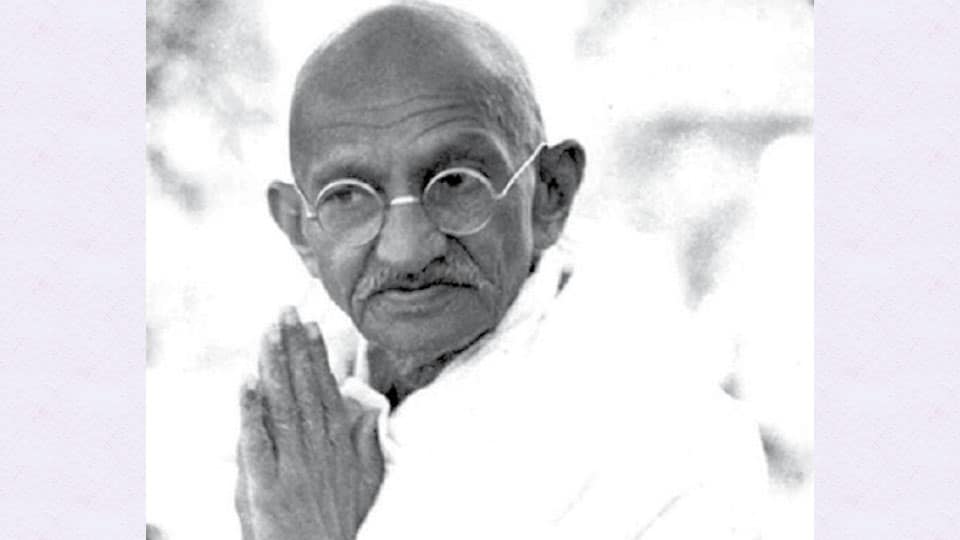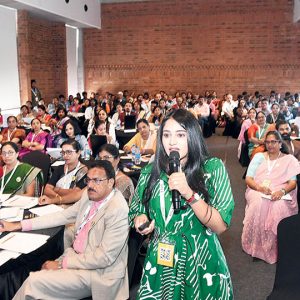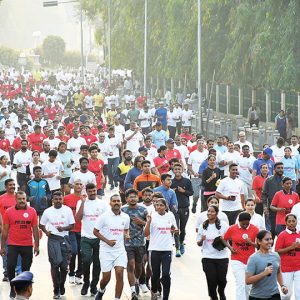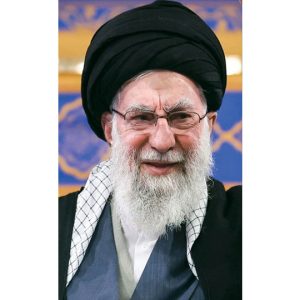By Prof. A.V. Narasimha Murthy, former Head, Department of Ancient History & Archaeology, University of Mysore
India became independent on 15th August 1947 and consequently the British rule came to an end. Gandhiji, Nehru and many other leaders played a very important role in sending the British out of India. As all of us know Gandhiji’s part was very important. Most people of this generation had no opportunity of seeing Gandhiji as he had been assassinated. It is reported at that time Gandhiji had said Hey Ram. There was no television then and hence we were glued to Murphy Radio.
Gandhiji had always dreamt of Ramrajya which meant that any unmarried girl or married couple could walk during midnight without being molested or troubled by the bad people. The word Satyagraha adopted by Gandhiji has an origin and evolution. It was first named as Sadagraha and subsequently it was named Satyagraha as we see today. Gandhiji said Satyagraha should not be resorted to personal ends but used against atrocities committed against the oppressed people. Even when the British left India in 1947, Gandhiji said that Britishers were not our enemies now and will not be our enemies in future also. We should love the Britishers and give them a warm send off when they leave this country.
Once Gandhiji said, ‘I have no enemies and all are my friends’. We may differ on many issues theoretically but we are friends and will remain so for ever. Thus love and affection were the watch words of Gandhiji.
Satya: To him, truth was everything in life of all people and all over the world. Americans, Britishers, Germans, Burmese etc., are the votaries of truth. That is the reason why he named his autobiography as Stories of Experiments with Truth. And this has been translated into many languages.
Gandhiji was influenced by the Bible, the Quran and the Upanishads because all these holy texts speak only a language consisting of love, affection, fraternity and social justice. Thus Gandhiji wanted everyone to have international outlook. Indian Constitution speaks of all these values in glorious terms. While doing Satyagraha it may be opposed by the masses but one should continue to do with the hope that one day in future people will be convinced of the good purpose of Satyagraha and will accept it as a normal practice. Further, there should be no secrecy in all these works but it should be like an open book. Then people will not get any doubt and accept it happily.
When Gandhiji returned to India from South Africa, he resorted to Satyagraha against the atrocities committed against the farmers, workers of all sorts including factories at Champaranya, Kheda and Ahmedabad. Thus he experimented with Satyagraha and subsequently jumped into international-level.
Gandhiji’s most important aim was to send the British back to their country and allow us to live in independence. This agitation was held for about 27years from 1920 to 1947. This important agitation became a Satyagraha of all people immaterial of their caste, creed, richness or poverty as long as they wanted to be in peace and be independent from the foreign rule.
To achieve this goal, Gandhiji resorted to various Satyagrahas such as Non-Co-operation Movement (1920), Salt Satyagraha (1930), individual Satyagraha (1940) and Chale Jav (British go back) Satyagraha (1942). These are some of the important Satyagrahas in which he took part. He had trained the volunteers in such a way as not to create fear among the people but they should be made to voluntarily participate in these movements. Gandhiji used to cite examples from ordinary homes. If the mother does not allow you to eat sweets and more sweets, it does not mean that she does not love her children. But she cares more for the health of her children and the children do not become angry against their mother because she is taking care of their health than any professional doctor. The children automatically realise the importance of their health and thank their mother. That is the reason why mother is given the first place while father comes next and teachers as well as guests later.
In one of his speeches Gandhiji has quoted the famous dictum ‘Mother is a Goddess, father is a God, teacher is a God and guests are Gods on earth in contemporary life’. After all these Gods and Goddesses are gone, they still bless their children from wherever they are.
These teachings became a lesson for everybody to achieve independence. In fact the greatness of Gandhiji’s Satyagraha influenced many world leaders such as Martin Luther King, Nelson Mandela and Angasan Suki of Mayanmar (Burma). In fact some of the successors of these votaries of truth have realised the importance of Satyagraha as practiced by Gandhiji and now it has become a worldwide phenomenon. In fact the famous scientist Einstein has remarked ‘That future generation would not believe that such a man as Gandhiji walked on the roads of many countries silently spreading the messages of love, affection and Satyagraha’.
Unfortunately, a class of people were called untouchables. But Gandhiji thought this is not the correct name and coined the word Harijans which meant they are God’s children. Even today this word is being used and it will continue in future also. In fact Gandhiji started a weekly newspaper called Harijan in 1933 and thus he gave a higher status to this class of people. Of course, there was opposition from upper class of people. But slowly they adjusted to this name Harijan. This is one of the most important contributions of Gandhiji and many Sociologists consider this as a more important contribution than political independence.
Gandhiji resigned from the membership of the Congress party and devoted his time and energy for the development of villages. He always believed that unless the social conditions of the villages were improved, no improvement can take place in cities. He wanted a calm and peaceful place to concentrate on his work and chose the Sevarama near Wardha.
In 1939 Gandhiji waited to help the Britishers if they assured that independence would be given to India. But no such assurance came from the British Government. Then Gandhiji resorted to Satyagraha by himself. Tragedies struck Gandhiji one by one. Mahadeva Desai and Kasturba were arrested along with Gandhiji and they were kept in the prision in Poona. Desai and Kasturba died in the prison itself.
Ultimately the Britishers left the country but before doing so they partitioned India as Hindustan and Pakistan. This partition is still continuing today and Pakistan has been giving pin pricks now and then.
When Gandhiji was assassinated, the entire India cried and felt that this is the end of an era. Thousands of condolence messages were received from all over the world. Gandhiji was a great devotee of Sri Ramchandra as he wanted Ramrajya which is full of peace without any fear. We are yet to achieve the goal.
I have a book with me the title of which is None High: None Low published by Bharatiya Vidya Bhavan (BVB), Bombay and on the first page there is a writing with the signature of M.K. Gandhi which reads as follows:
I like Anand Hingoran’s Idea of collecting my writings under suitable heads. The reader will not fail to appreciate the labour he has given to securing attractive printing and binding – M. K. Gandhi
Let us follow this ideal this Independence Day.








*Shaheed Udham Singh*
“He is a mad man” – said *Gandhi !*
“His act was a senseless deed” – said *Nehru !*
“We condemn his act of terror and apologise and hope we are not punished for it” – – resolution passed by *Congress !*
He was *Shaheed Udham Singh* and the senseless deed he did was that he killed *Michael Dwyer.*
Michael was the *monster* who massacred 1526 innocent unarmed peaceful Indians in *Jalian wala Bagh in 1919.*
Udham singh was 19 year old volunteer who was serving water to the 20,000 people gathered in the garden on festival of Baisakhi.
They were brutally massacred by Gen Dwyer and Udham singh was live witness to it.
He wanted to avenge the brutality and get some sense of justice to these martyrs.
British GOVT didn’t take any action.
*Congress couldn’t get british to act on Dwyer.*
So Dwyer happily retired to England and lead a peaceful rich life.
*Meanwhile, Udham singh joined Gadhar Party and fought for freedom.*
He was jailed for 5 years and there he was inspired by death and martyrdom of *Bhagat Singh* who wanted to take action on Dwyer.
After release, he escaped from India through Kashmir. He went to Germany and then to London.
He joined as engineer and pursued Dwyer for 6 years. He procured a gun, learnt shooting and then found that on 13, March, 1940 Dwyer was speaking in Caxton hall, London.
He hid a gun in a book in which he had carved a place for gun. Sat in front row and shot two bullets into heart and lung of Dwyer.
He didn’t escape. He bravely courted arrest.He told these words to the judge:
*”I did it because I had a grudge against him. He deserved it. He was the real culprit. He wanted to crush the spirit of my people, so I have crushed him. For full 21 years, I have been trying to seek vengeance. I am happy that I have done the job. I am not scared of death. I am dying for my country. I have seen my people starving in India under the British rule. I have protested against this, it was my duty. What greater honour could be bestowed on me than death for the sake of my motherland?”*He was sentenced to death in the court.He fasted for 42 days in the jail and was brutally tortured and hanged on July 31, 1940
Meanwhile in India congress condemned his act. Nehru abused him for making British angry and they forced congress to pass a resolution against killing of Dwyer.*
They were very busy those days helping British recruit Indian soldiers for World War – II and they didn’t want Punjab to get upset with British.
This is our great freedom fighting party which condemned killing of a monster like Dwyer who massacred 1526 people in Punjab.
*Udham Singh was buried in London and like other freedom fighter’s, he is forgotten in India.*
No textbooks talk about him. Few people know about him.
.*I am happy that they are making a movie on this patriot and coincidentally it will be released on Gandhiji’s birthday on Oct 2. His story is a great and inspiring one.*
Mayawati named a District in Uttarakhand after him in 1995, perhaps the only good deed she has done in her life and in 1974 his remains were exhumed and brought to Bharat and he was cremated here.
His ashes are in urn in *Jalian Wala Bagh.*
Please pass this message to your children and Grandchildren …
@Jasbir Singh – Thank you for sharing the story of a true freedom fighter which we would have never known!
In your reply, we can see the seeds of our pseudo secularism and appeasement mindset even since before _independence days! British never treated Indian deaths same as the deaths of their own! Even Congress continued this in a narrower scale .
We can see the concern from congress in the statement ‘“We condemn his act of terror and apologize and hope we are not punished for it” – – resolution passed by *Congress !*’ .
When Indira Gandhi was assassinated, Sikhs took a very heavy toll of 8500 lives in the hands of congress! They did not want to spare a single Udham Singh! They must have been expecting the same response from British!
1526 people were butchered and no action was even demanded by our rulers!
Now, the situation is slightly different! Millions of kashmiri Pandits faced extinction and there was not even a peep! But, if one person with some specified surname dies under mysterious circumstances , hell may brake lose calling all of us the ‘intolerant’ even without an iota of evidence!
Now we have so many pseudo freedom fighters leading a posh life, with the only service they may have done is to live during the independence movement! And the real martyrs who served the nation, we may never even know!
@Jasbir Singh – No, Udham Singh is not a martyr! Bhagat Singh is not a martyr! Savarkar is not a martyr! Tippu is a martyr! Indira Rajiv and Sanjay Gandhi are martyrs! Your martyrdom depends on whom you kill!
You need to educate yourself about secularism and then only you can understand these things.
Good writing!